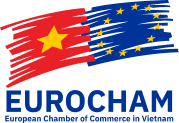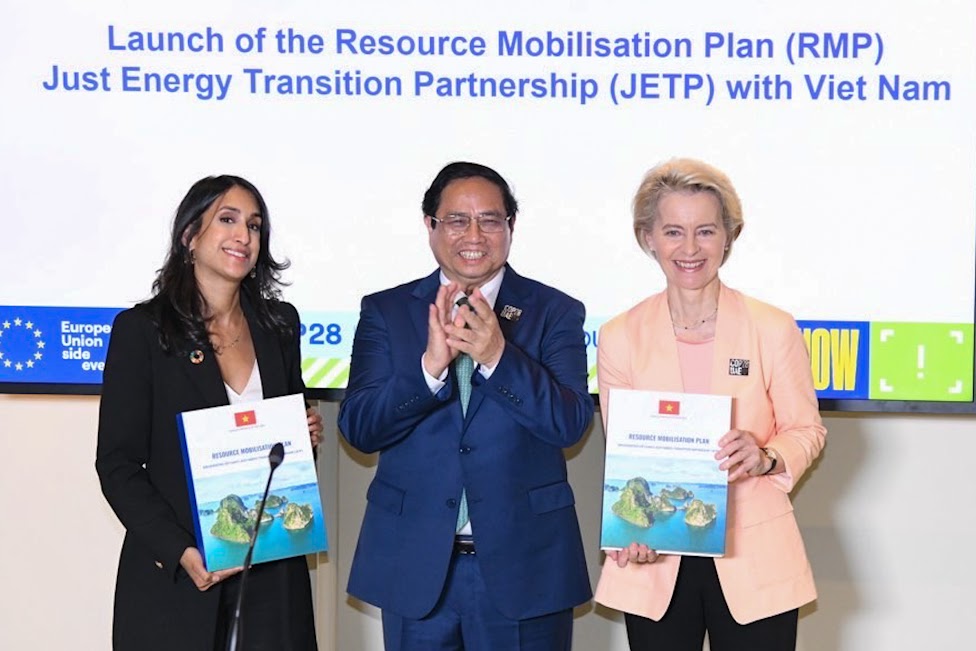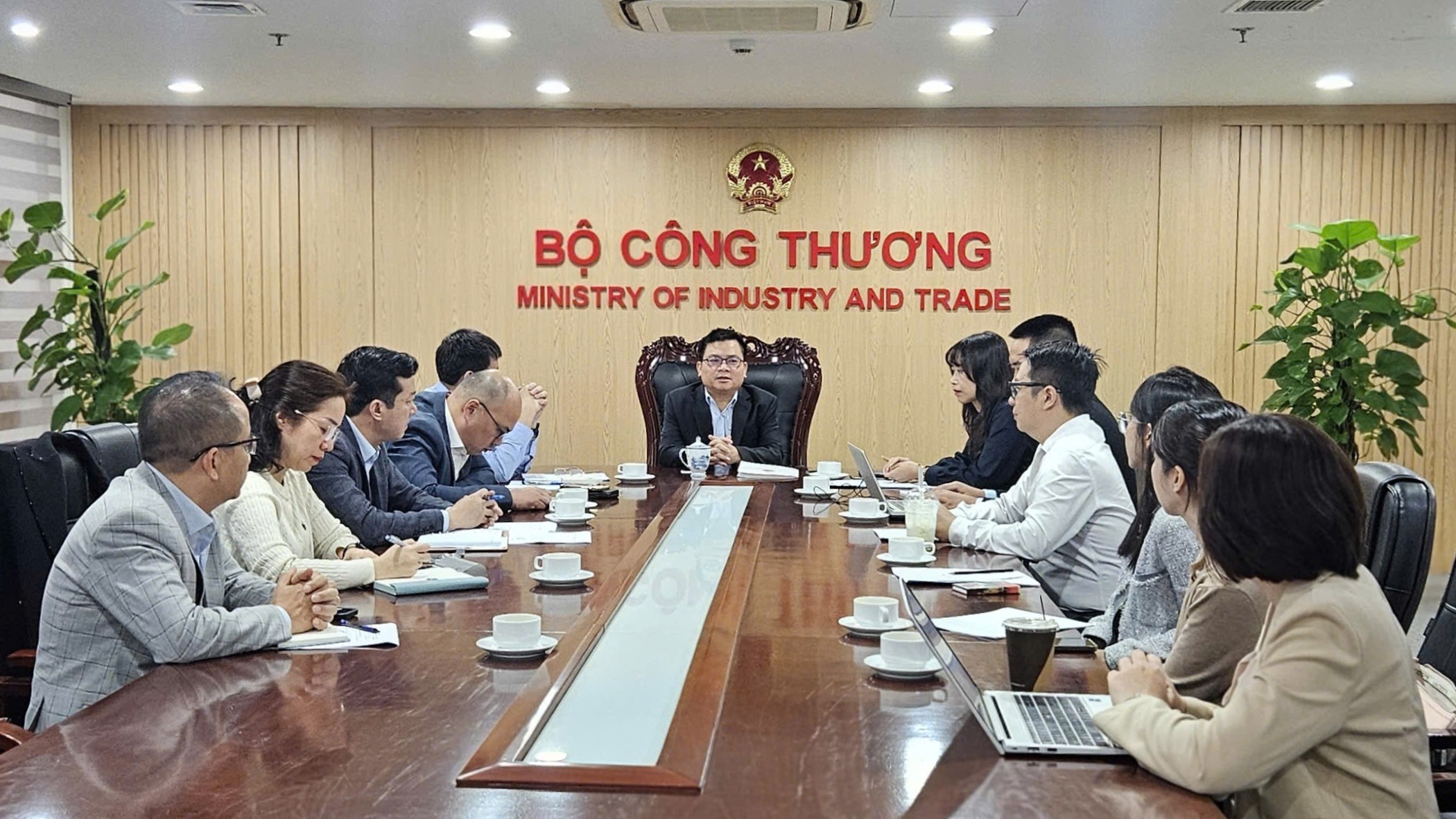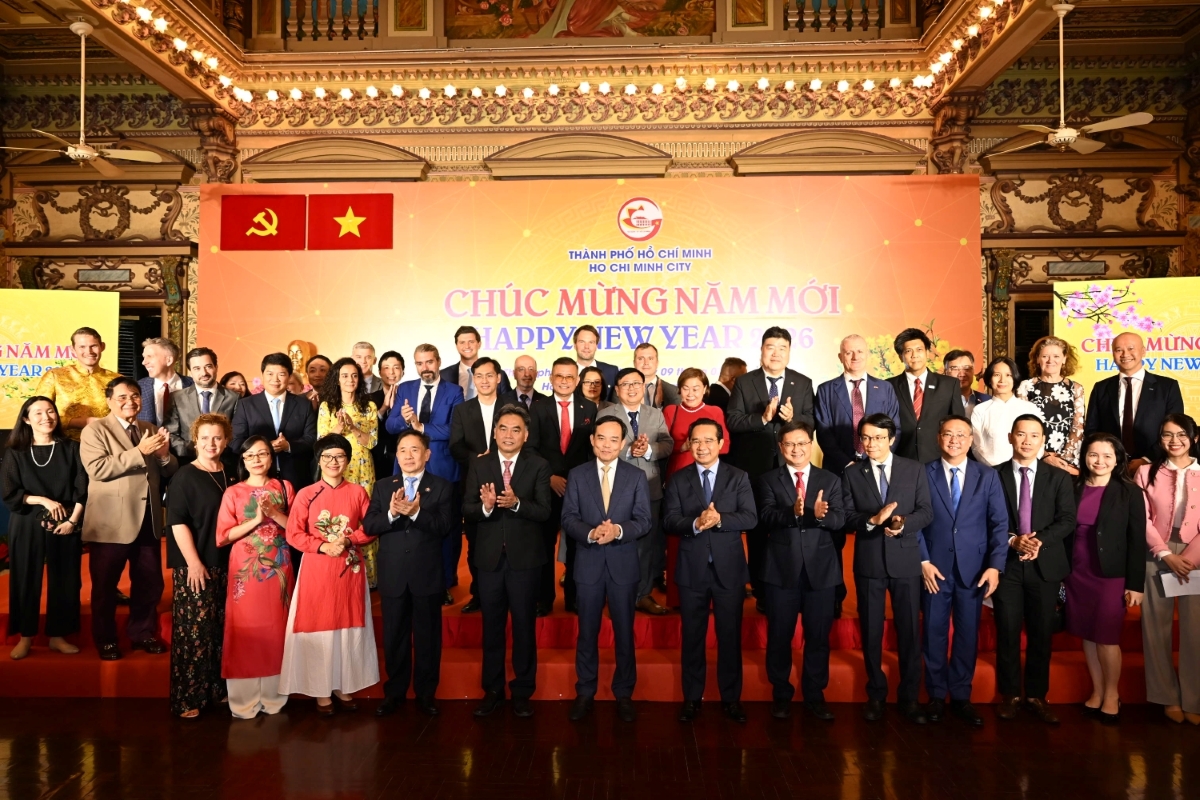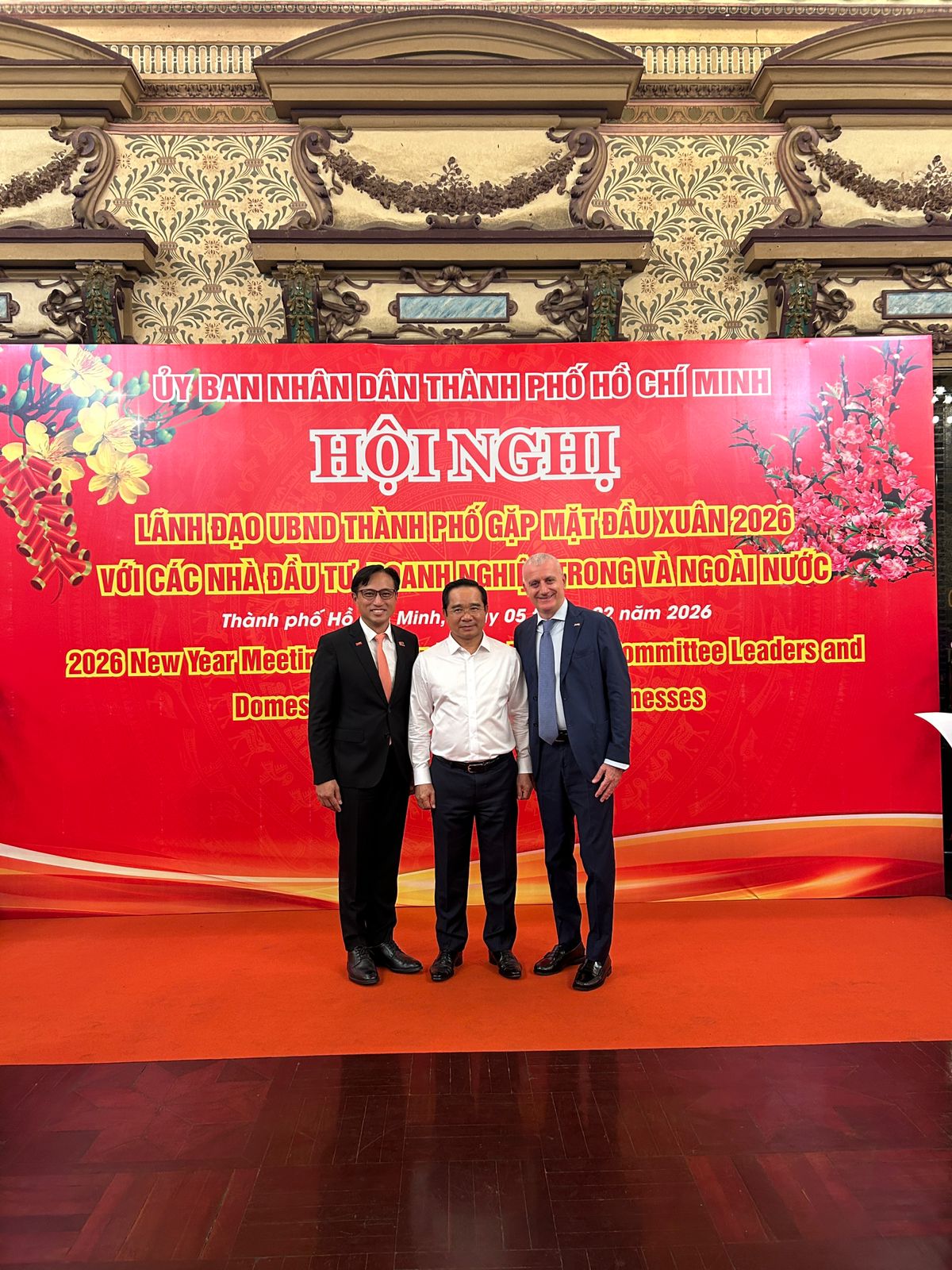As the COP28 summit concludes, Vietnam has solidified its position as a key player in global climate change discussions. Under the leadership of Prime Minister Pham Minh Chinh, the country built upon its previous commitments from COP26, underscoring its significant role in these critical conversations. A central element of Vietnam’s engagement at the summit was the unveiling of the Just Energy Transition Partnership’s (JETP) Resource Mobilization Plan (RMP).
The RMP, a critical component of the JETP, was officially unveiled by Prime Minister Chinh, European Commission President Ursula von der Leyen, Vietnam’s Minister of National Resources and Environment Dang Quoc Khanh, and notable business figures including Bill Winters from Standard Chartered. The RMP is a strategic plan that underpins Vietnam’s commitment within the JETP framework. Its purpose is to guide Vietnam towards a sustainable energy future by outlining specific actions and financial strategies.
The JETP represents a comprehensive approach, bringing together international assistance in policy-making, technology transfer, and financial support to aid Vietnam’s transition to renewable energy and energy efficiency. The JETP’s focus extends beyond immediate financial aid, emphasizing capacity building through education and private sector engagement, thereby ensuring a holistic and sustainable approach to energy transition.
The RMP serves as a comprehensive guide for Vietnam’s energy transition, providing project prioritization, selection criteria, and detailed strategies for securing financing from international partners such as the IPG and GFANZ. The plan acknowledges that the financial commitments are just a segment of Vietnam’s broader needs in its energy transition journey. It aims for a far-reaching impact by addressing various critical areas including regulatory improvements, transitioning from coal power, and fostering innovation and technology transfer, among others.
The plan spans eight critical areas, namely:
- Improvement of the regulatory framework.
- Transitioning from coal power.
- Developing the renewable energy ecosystem.
- Enhancing energy saving and efficiency.
- Upgrading power and energy storage systems.
- Reducing greenhouse gasses in transportation.
- Fostering innovation and technology transfer.
- Ensuring a just energy transition.
The RMP, envisioned as a living document, is crucial for achieving Vietnam’s ambitious goal of net-zero emissions by 2050. It focuses on transitioning from fossil fuels, improving regulatory frameworks, and ensuring a just and inclusive energy transition. The plan sets specific targets for Vietnam, such as advancing the peaking date for greenhouse gas emissions, capping emissions in the power sector, and increasing the share of renewable energy. Its implementation strategy involves a collaborative effort between the Vietnamese government and the IPG, with the establishment of the JETP Secretariat and working groups to oversee progress.
For further information on the JETP RMP, readers are encouraged to review the joint statement regarding its launch and the full English-language version of the RMP.
